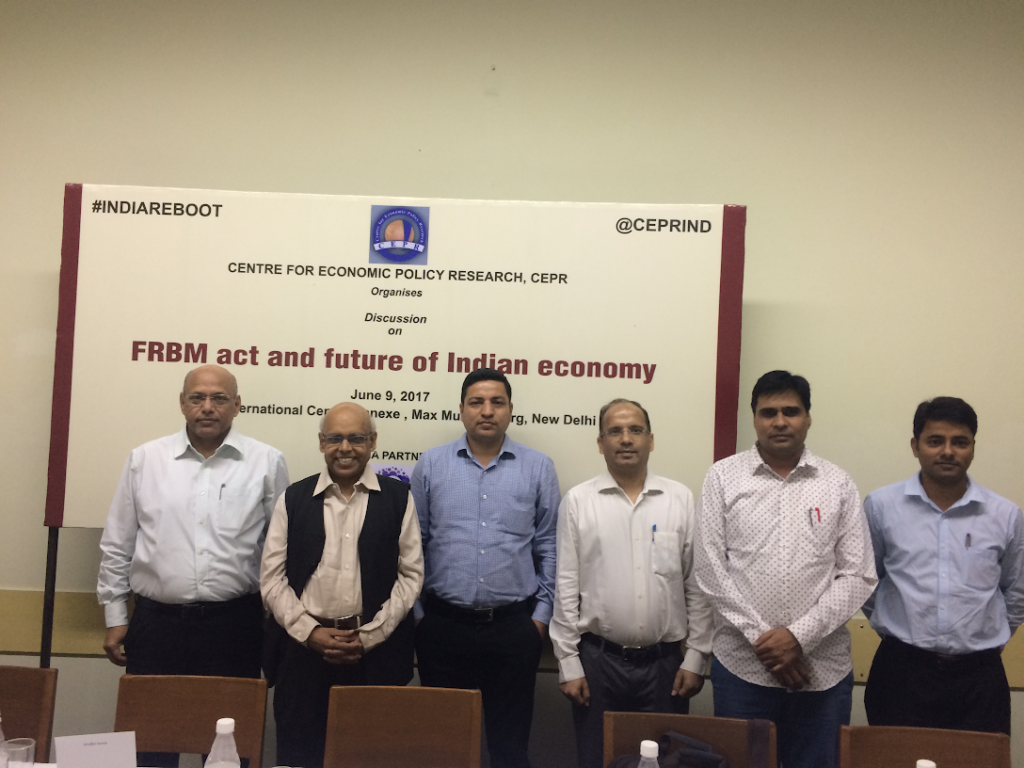ROUNDTABLE ON INDIA REBOOT: FRBM ACT AND ITS IMPACT ON INDIAN ECONOMY
June 9, 2017
Centre for Economic Policy Research or CEPR, organized a discussion on “Fiscal Responsibility and Budget Management (FRBM) Act and its Impacts on Indian Economy” which was held on 9 June 2017, at the India International Centre Annexe. The discussion panel consisted of DK Joshi, Swadeshi Jagran Manch’s National Co Convenor, Ashwini Mahajan, and Director of CEPR, Dr. Subhash Sharma The panel emphasised that the need for broad range for Government’s fiscal deficit in place of the current practice of having a fixed target which led to the formation of the N. K. Singh committee to review the working of the FRBM Act.

The panelists discussed the report threadbare. The first volume of the report addresses the issue of fiscal policy, fiscal roadmap, international experience and recommendations therein. Second Volume refers to international best practices, the third volume deals with Centre-State issues and the fourth volume deals with ‘what we call the domain experts’, both national and international. The panelists discussed about debt as the primary target for fiscal policy. The debt to GDP ratio of 60% was targeted, which should be achieved by 2023 and in order to achieve that, the Committee proposed yearly targets to progressively reduce the fiscal and revenue deficits. Panelists mentioned the addition of an autonomous fiscal policy council that would prepare multi-year fiscal forecasts, recommend changes to the fiscal strategy, improve quality of fiscal data, advise the government if conditions exist to deviate from the target and also to take corrective action for non-compliance with the Bill. The discussion concluded by talking about the grounds on which the government can deviate from the specific targets and also the circumstances when the government can borrow money from the RBI were a topic of discussion. The dissent note submitted by Arvind Subrmanian, Chief Economic Adviser CEA to the Government of India, who believed that there should be a single objective because multiple targets with precise limits may make it difficult to achieve them all was also mentioned by the panel.